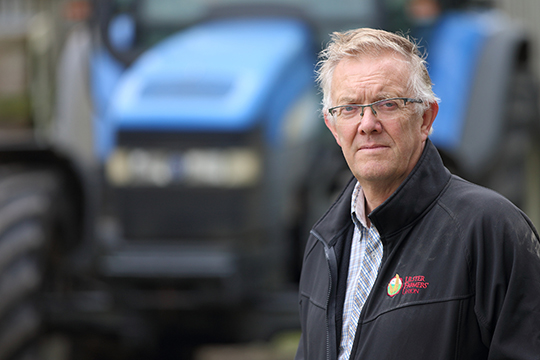UFU reacts to Boris Johnson comments on future of farm subsidies.
The Ulster Farmers’ Union says it is alarmed by Conservative leader candidate Boris Johnson’s recent comments regarding future farm subsidies after Brexit and stressed that agricultural output remains the fairest measure for allocating domestic farm funding across the UK.
The UFU reacted after Mr Johnson pledged an extra £25 million a year for Scottish farmers if he were to become prime minister.

UFU president, Ivor Ferguson said: “We are seeking clarity about where this additional money will come from. Any suggested reduction in the amount of agricultural support for Northern Ireland is cause for widespread concern and something we are firmly opposed to.
“Our long-held view is that the most equitable way to allocate farming subsidy between the UK regions is based on agricultural output and we can see no justification for amending the current UK formula. This provides the fairest reflection of both the historic and current activity in the supported sectors undertaken in each region.
“Based on this allocation method Scotland, in fact, receives the highest proportionate share of CAP Pillar 1 support than any other UK region in terms of supported sector output, with both NI and Wales actually receiving a lesser percentage than their supported sector output justifies. Scotland also differentiates direct farm support based on land productivity to restrict the funding on unproductive land with one of its three regions receiving a flat rate payment of just over €10 per hectare.”
The UFU says the added complication of an agricultural supply chain that is deeply integrated with the Republic of Ireland (ROI) is one the reasons why Northern Ireland will be more adversely affected by a badly managed Brexit than any other UK region.
Mr Ferguson added: “The possibility of funding allocation adjustments could not come at a worse time for farmers in Northern Ireland. After Brexit, farmers in ROI will continue to benefit from robust support from the EU. Putting us at a significant competitive disadvantage at a time when we are already facing considerable upheaval in our supply chain with additional trade barriers including tariffs, additional checks, bureaucracy, and delays.”























